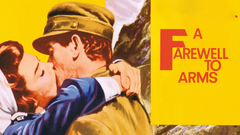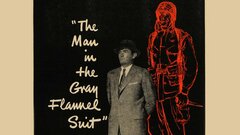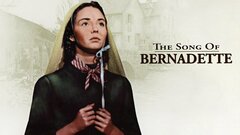Jennifer Jones

Actress
Birth Name: Phylis Lee Isley
Birth Date: March 2, 1919
Death Date: December 17, 2009 — 90 years old
Birth Place: Tulsa, Oklahoma
Spouses: Robert Walker, David O. Selznick
Children: Robert Walker Jr.
She was the proverbial middle-American beauty made an overnight star by the smitten Hollywood big shot, and made good on it with five Oscar nominations and one statue. Only a few years after he had made Vivien Leigh the dark-horse victor of his Scarlett O'Hara sweepstakes, David O. Selznick unveiled Jennifer Jones as his latest discovery in "The Song of Bernadette" in 1943, an American film debut that, like Leigh's, would earn her the Best Actress accolade at the next year's Academy Awards. Selznick's dedication to Jones' career would make her a staple lead in star-helmed romances such as "Duel In the Sun" (1946), "Love Is a Many-Splendored Thing" (1955) and "The Man in the Gray Flannel Suit" (1956), as well the subject of the storied producer's own romantic zeal - yielding an enigmatic legacy of a movie star with a memorable body of work.
Jones was born Phylis Lee Isley on March 2, 1919 in Tulsa, OK, to Phil and Flora Mae Isley, operators of a regional theatrical troupe, the Isley Stock Company. The family business afforded Phylis her first work in show business selling tickets on her non-school days and did well enough by the time the Depression struck that Phil Isley could begin buying up movie theaters and equipping them with sound for the "talkies" coming out of Hollywood as of the early 1930s. The Isley theater chain soon stretched into Texas, giving Phylis, who had decided she wanted to act at age 4, unfettered access to the latest movies and spurring dreams of stardom.
Upon graduating high school, she briefly attended Monte Cassino, a local Catholic junior college, then went on to Northwestern University, but soon found herself restless and unenthusiastic about the curriculum. She was accepted into the American Academy of Dramatic Arts in New York City, matriculating in fall 1937.
She began a relationship with fellow student Robert Walker, who, after a year at the Academy, grew eager get out into the job market, and Phylis agreed to go with him. Phil Isley arranged for his daughter to star in her own eponymous radio show back in Tulsa, Walker joining her on the air for a 13-week run, but the couple married in early 1939 and decided to seek their fortunes in Hollywood. It would be a brief and uneventful sojourn. While she signed on with minor studio Republic for which she did a B-Western in its "Three Mesquiteers" series and the matinee serial "Dick Tracy's G-Men" (1939), Walker fielded better opportunities in radio in New York and the couple moved east again.
Phylis did some modeling but found little acting work, in the meantime bearing two children, Robert Jr. and Michael. She auditioned for a production of the play "Claudia," and, though she didn't get the part, playwright Rose Franken was impressed enough that she recommended the young actress for possible casting in the film adaptation then in the works by independent über-producer David Selznick.
She would not get the role, but her audition did garner the personal attention of Selznick, who almost immediately offered the "big-eyed girl," as he called her in memos, a seven-year contract with his company. Even before Selznick found a part for her, he brought her to Los Angeles and introduced her as his latest discovery under the stage-name Jennifer Jones, in the meantime securing a contract with MGM for Walker, who brought the family out. Selznick found the ideal launch pad for Jones in an upcoming 20th Century Fox project, "The Song of Bernadette," the tale of an earnest French peasant girl who has pastoral visions and eventually is canonized a saint. The New York Times' review averred that Jones' "large, sad eyes and soft face, her wistful mouth and luminous smile are a thoroughly appealing exterior for the innocence which shines from within." Upon the next year's Academy Awards, the newcomer won the Oscar for Best Actress; Jones was distracted enough the evening of the ceremony that she left her statue in the cab she took home. Walker also saw his fortunes on the rise with notices for his first credited role in the film "Bataan" (1943), but the marriage was faring worse.
Selznick, himself married to MGM honcho Louis B. Mayer's daughter Irene, pursued Jones, and they had begun an affair at least by the time production began on the somber homefront drama "Since You Went Away" (1944), the production fraught with problems owing to the fact that Selznick had cast Walker as Jones' love interest. The couple separated, to be divorced the next year - initiating a downward spiral of mental instability and alcohol abuse for Walker, eventually resulting in his untimely death in 1951 - and Jones and Selznick's relationship became an open secret in Hollywood.
Since You Went Away" scored Jones another Oscar nomination early the next year, and she reunited with that film's co-star Joseph Cotten in Paramount's romantic psychological drama "Love Letters" (1945), which brought her another nomination. She showed a flair for comedy in "Cluny Brown" (1946), playing an apprentice plumber caught up in society hijinx.
Selznick began his pattern of micromanaging Jones' career, selecting only projects that might forward his deific image of her. His would-be Western epic "Duel In the Sun" (1946) had her as a half-Native American bad-girl torn between two wealthy Texan brothers (Cotten and Gregory Peck), her lusty desires and her conscience. Selznick hoped to make it his next "Gone With the Wind," and though the picture survived scathing reviews to do well at the box-office - and earn Jones a fourth Oscar nomination - the then-astronomical $6 million he poured into the production and over-ambitious marketing expenses reputedly winnowed profits to almost nothing.
Next, the pricey melodrama "Portrait of Jennie" (1948), had her as an ethereal, spectral muse to Cotten's artist and highlighted Selznick's imperative to directors to feature idealized close-ups of Jones at every opportunity, which proved insufficient to make the film a hit. After an odd turn as a Cuban revolutionary opposite John Garfield in John Huston's 1949 curiosity "We Were Strangers," she shone in Vincente Minnelli's adaptation of "Madame Bovary" (1949), a lavish period piece that allowed Jones to realize a more textured title character through her rags-to-riches arc. Jones and Selznick wed that year, but he became even more intrusive in her work, her next film, the U.K.-made Michael Powell-directed Victorian melodrama "Gone to Earth" (1950), eliciting a more uninhibited performance by Jones, but not until two years later would Selznick release the film in the U.S., redubbed "The Wild Heart" (1952) and re-cut to add more Jones close-ups and excise plot-points.
She would settle into a run of illicit-romance fare: "Carrie" (1952), with Jones as the object of affection and ruination of Laurence Olivier; "Ruby Gentry" (1952), with Vidor coaxing some spirit out of her as a lower-class Southern woman wooed by three men from the proper side of the tracks; and "Terminal Station" (1953), which had her as a married American woman ending an Italian holiday and affair with a young man (Montgomery Clift). The Italian production of the latter came as Jones dealt with guilt over Walker's recent death and a difficult period with Selznick, who meddled from afar and would again denude the finished product into a 63-minute cut retitled "Indiscretion of an American Wife."
She was next set to star in "The Country Girl" (1954), but discovered she was pregnant, the part going to Grace Kelly, whose performance would win the Oscar. Jones bore Selznick a daughter, Mary Jennifer, in 1954. She put together a sequence of off-the-beaten-path roles, a disarmingly plucky con-woman in Huston's "Beat the Devil" (1954); a dowdy, bed-ridden spinster in "Good Morning, Miss Dove" (1954); a short-lived, poorly reviewed Broadway stint in "Portrait of a Lady" in late 1954; and a Chinese doctor wooed by William Holden in the period's canonical bittersweet romance, "Love Is a Many-Splendored Thing" (1955). Under the helm of "Bernadette" director Henry King, the latter became a major hit and earned Jones her fifth Oscar nomination.
Jones returned in the examination of post-war middle-class suburban angst, "The Man in the Gray Flannel Suit," reuniting with Peck in the role of his over-ambitious but ultimately angelic wife.
But the end of the decade saw her fortunes ebb, first with MGM's gaudy "The Barretts of Wimpole Street" (1957), then more infamously in Selznick's own slogging adaptation of Hemingway's "A Farewell to Arms" (1957). The movie drew such critical fire and so few box-office receipts that it would prompt Selznick to effectively retire, and he and Jones sought to avoid the fallout by bolting the U.S. on what turned out to be an extended tour of Europe and India, with which Jones became particularly enamored, adopting yoga into her regimen.
She did not do another film until 1961, working with King again in Fox's adaptation of F. Scott Fitzgerald's "Tender Is the Night," but it fared poorly and she retreated from the public eye. Her son, Robert Walker, Jr., in the meantime would pick up a Golden Globe award as "most promising newcomer" for his performance in the film "The Ceremony" (1963). Selznick died in 1965, and to cope, Jones decided to work again, taking a role in "The Idol" (1966) as a middle-aged mother seduced by her son's temperamental artist friend. She followed that with a turn in a stage revival of "The Country Girl" at New York City Center, but she remained mired in depression over Selznick, which only went compounded upon the death of her friend and "Bernadette" and "Duel In the Sun" co-star Charles Bickford, who had supporting.
On Nov. 9, 1967, Jones checked into a Malibu motel, took an overdose of barbiturates and was later found unconscious on the beach. She would recover, claiming the overdose accidental, not a suicide attempt. Eerily, her daughter by Selznick, Mary Jennifer, would also deal badly, experimenting with drugs and eventually suffering a breakdown.
Jones went back to work in the 1969 oddity "Angel, Angel, Down We Go" (1969), a trippy mod-ish outing in which she played the mother of a daughter whose rockstar boyfriend winds up seducing every member of the family, Jones' character revealing her past in the camp-classic line, "I made 30 stag films and never faked an orgasm!" In 1971, at a party thrown by media mogul and art collector Walter Annenberg, she met Annenberg's fellow collector Norton Simon, the multimillionaire corporate raider who had most famously made Hunt Foods into a major packaged-goods company. A month after their meeting, Simon and Jones wed. Within a few years, Simon convinced her to emerge from retirement once again, which she did in Irwin Allen's all-star disaster opus "The Towering Inferno" (1974), playing a doomed tenant.
In 1976, Mary Jennifer committed suicide, jumping from a 22-story building in L.A., while Jennifer was visiting her ailing father in Oklahoma. Phil Isley died not long after.
Jones and Simon, who had lost a son to suicide in 1970, began dedicating time and money to fight mental illness, in 1980 endowing the Jennifer Jones Simon Foundation for Mental Health and Education. Jones flirted with another return to show business the next year, purchasing the film rights to Larry McMurtry's novel Terms of Endearment, but producer/director James L. Brooks considered her too old for the part of the steadfast mother of the piece, Shirley MacLaine eventually winning the Best Actress Oscar for the role, Brooks the best screenplay, picture and director statues. Jones became reclusive, helping to take care of Simon when a few years later he was diagnosed with the incapacitating Guillain-Barré Syndrome in 1984, eventually taking over executive control of his art empire via the Norton Simon Foundation and the Norton Simon Museum, which he had endowed in Pasadena in 1978.
She lived in Malibu with son Robert Walker, Jr. and his family until her death from natural causes on Dec. 17, 2009.
Credits

etalk

The Towering InfernoStream

Cult of the Damned

The Idol

Tender Is the NightStream

A Farewell to ArmsStream

The Barretts of Wimpole Street

The Man in the Gray Flannel SuitStream

Love Is a Many Splendored ThingStream

Good Morning, Miss DoveStream

Beat the DevilStream

Indiscretion of an American Wife

Carrie

Ruby Gentry

Gone to Earth

We Were Strangers

Madame BovaryStream

Portrait of Jennie

Duel in the Sun

Cluny Brown

Love Letters

Since You Went Away

The Song of BernadetteStream

Dick Tracy's G-men





































































































































































































































































































